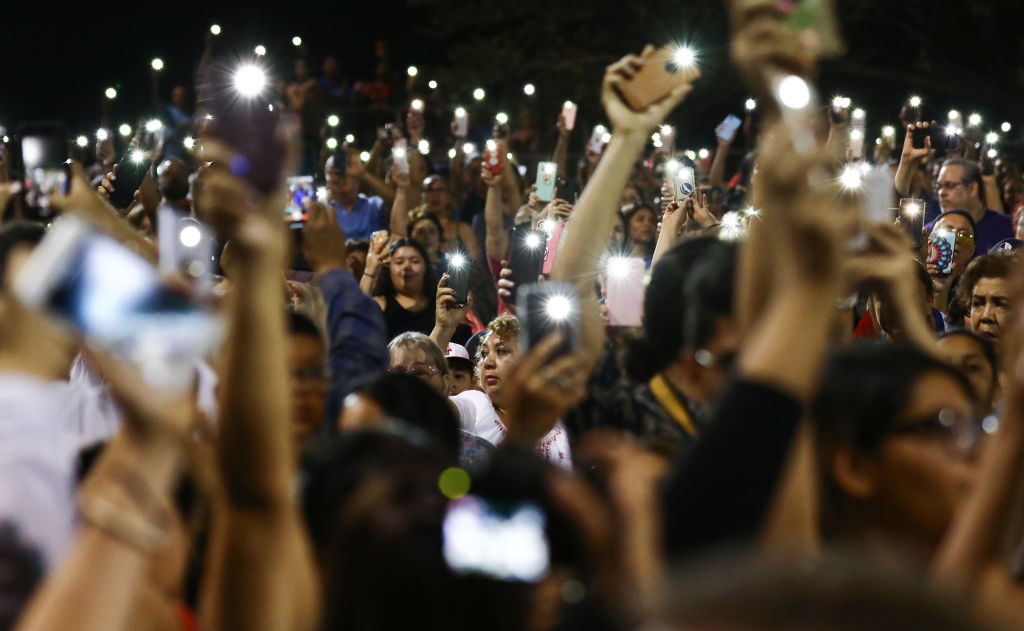
Internet security company Cloudflare announced on Monday it would no longer be offering protections to annoymous messageboard 8chan. It was a decision that came in the wake of the mass shooting in El Paso, Texas, which has been linked to the site and its community.
8Chan, a spinoff of similar messageboard 4chan, has been linked to three mass shootings in 2019.
Twenty-one-year-old Patrick Crusius, the suspected shooter who killed at least 20 people and injured more than two dozen in El Paso, Texas, on Sunday, posted a manifesto to the site before carrying out the attack.
Earlier this year, an account believed to belong to the gunman behind the Christchurch mass shooting posted an 87-page manifesto to the site.
And in April, the suspected gunman behind the the deadly shooting at the Congregation Chabad synagogue in Poway California also posted to the site.
Now, after repeated calls to stop dealing with 8chan were turned away, Cloudflare – which runs a business that profits off of protecting websites that are likely to face DDoS attacks – has agreed to stop.
“The rationale is simple,” said Cloudflare CEO Matthew Prince in a blog post, “they have proven themselves to be lawless and that lawlessness has caused multiple tragic deaths. Even if 8chan may not have violated the letter of the law in refusing to moderate their hate-filled community, they have created an environment that revels in violating its spirit.”
And while some have supported the San Francisco-based tech company for finally dealing with 8chan, it was a decision that only came after 24 hours of telling media outlets the opposite.
On Sunday, Cloudflare general counsel Doug Kramer told BuzzFeed News that “scratching an itch in a situation like this is very problematic.”
“We would just be taking parts of the internet and opening them up and making them less secure,” he said.
Also pushing back against calls to dump 8chan, Matthew Prince told The Guardian the company had a “moral obligation” to keep the site online, arguing that CloudFlare’s involvement meant sites like 8chan would be monitored, and illegal content flagged to law enforcement.
It is a disturbing trend not isolated to Cloudflare: major tech companies regularly skirt responsibility for the actions they facilitate – be it an internet security company or a social network like Twitter or Facebook. In the world of Big Tech decisions are rarely made until the pressure becomes unbearable.
This latest U-turn only serves to prove once again that it’s not about the issue at hand, but about how many people have an issue with the issue. Cloudflare is reportedly readying itself for an initial public offering, something that would no-doubt be hampered by its links to mass shootings across the United States.
In his statement and in interviews with the media, Prince regularly cites the company’s decision to stop offering services to neo-Nazi website the Daily Stormer, and seems to argue that the site is both still in existence (it is) and stronger than ever (it’s not).
Cloudflare only made the decision to kick off the Daily Stormer four days after the death of Heather Heyer in Charlottesville, 2017. Any suggestion that the website has gone from strength to strength since that decision is foolish at best, and a lie at its worst.
Michael Salter, an Associate Professor of Criminology at the University of New South Wales, said companies like Cloudflare have business models grounded in maintaining controversial sites, as those sites attract attention and cyber attacks that then enable them to log the pattern of attack and increase efficacy.
“This is why they provide a free service to smaller websites, as well as providing for-profit security services,” he said.
“It uses the websites that sign up for free to test out and to learn more about different cyber attack strategies. These businesses make a moral decision to deal with these websites,” he said.
“The form of communication is determined by the platform. We see particular design features that enable these cultures to go down. That’s not to say that people won’t show up on other platforms – they are already on them – but the particular way they share is limited. 8chan was popularised because other platforms were not permitting the kinds of hate speech it hosted.”
“The answer is that legitimate tech businesses should be denying service provision to websites that are hosting hate content or child sex material. At the moment there is no legal obligation for tech companies to deny service to websites on this basis, and yet it is well assumed that providers of services do that.”
“These are very wealthy people,” said Salter.
“There are legitimate questions about why the tech industry allows this.”
On Monday afternoon, 8chan’s admin tweeted to his 20,000 followers that all of the site’s domains had been removed from CloudFlare. “We will be moving to another service ASAP,” he wrote.
“Please excuse any downtime as we migrate to a new service.”



